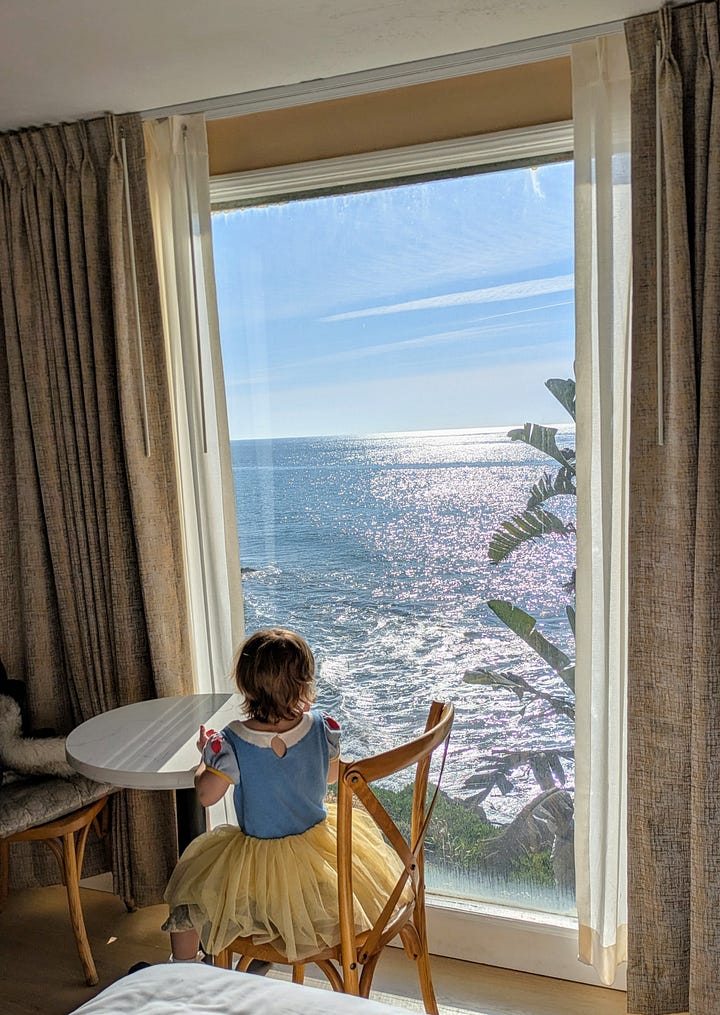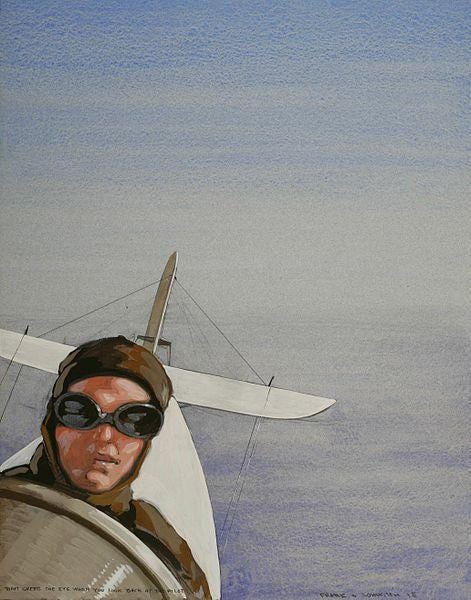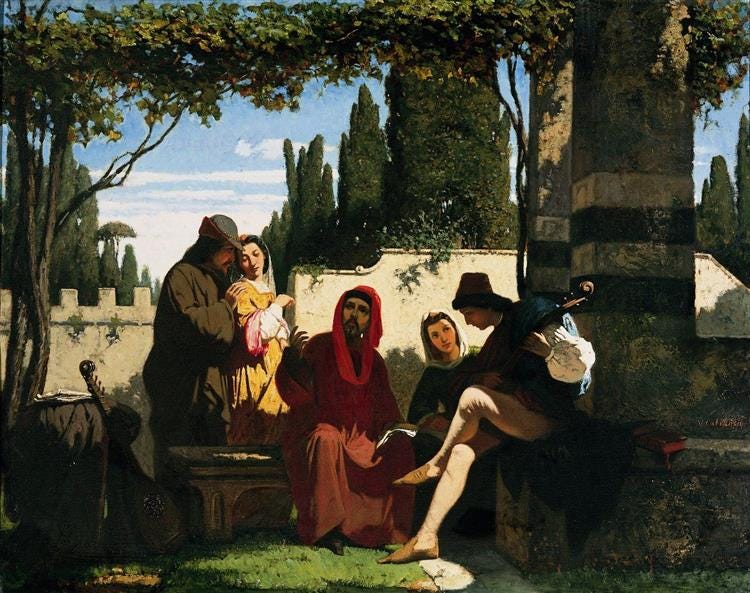Hello, my friends,
It’s been almost six months of silence from me. A few people have asked after the newsletter and some have asked why I haven’t been posting. Thank you for your interest! The answer is uncomplicated: I didn’t feel like talking anymore; even though this is prose, to me it’s akin to speaking to you every week. In January of this year, the right thing for me was to be quiet. For several months afterward, I sat peacefully with that. I seriously considered returning in April to mark the second anniversary of Hello, My Friends! but the time wasn’t right and the reason too weak — anniversaries are meaningful landmarks in time, but ultimately, they are only so by consensus. I wasn’t into it at that time. For the past two months, I’ve been drafting issues of HMF in my head now and again, slowly drifting towards this day. But it’s not a big deal. I was away for a little while and now I’m back. Hello, my friends!
Six Months Who Dis
This newsletter isn’t simply a conversation, it’s also a record of events in a life. With six months missing, one of my recurring was how do I make up for lost time? Really, it’s impossible. With work, family, and hobbies, it would take many newsletters to catch up with all the happenings of these months. So I’ll provide an espresso of events, several shots of what I (we) have been up to with perhaps more next time.





A few other things happened, too. Michael had a birthday (his sixth) and received a bike, we went to the Raymond M. Alf Museum of Paleontology, I built a website for SHIRIM, a Jewish literary journal that has been publishing since 1982, took two memorable walks along the L.A. River (thanks to outreach efforts of the Friends of the LA River, who I met during an event for work), Ashley and I saw an opera (Daphne by Richard Strauss) at a local church and, most recently (Sunday!), I drove the library’s MakMo (maker mobile) van in the West Hollywood Pride Parade!
I could go on, but I think that qualifies as a few things. And now that summer is nearly here, I recommend holding on to your salad bowl hats!
Can Adults Play Games?
In the bible (1 Corinthians 13:11), it says: “When I was a child, I spake as a child, I understood as a child, I thought as a child: but when I became a man, I put away childish things.”
I’ve written about games here several times (for example, #19) and have had a passing interest in solo (or solitaire or journaling) RPGs for some time now, though have never actually played. The idea of crafting a narrative and introducing chance through game mechanics is intriguing to me because it overcomes my reservations about journaling (tldr version: I already know what I think, why write it?). Recently, I’ve doubled down on this interest by printing and reading through the (free) 200+ page Ironsworn rulebook with the intention of actually playing.
Ironsworn is a ruleset that lays out the game mechanics and some creative story background to allow a person to form a story in a low fantasy setting, though it can be fairly easily adapted to almost any imaginative environment. You tell a piece of story, then make a “move” by rolling some dice and inventing consequences based on the type of move and roll results. It looks like this. There’s a balance of probabilities and character/world conditions that make the interplay of storytelling and randomness interesting. I’m excited and a little scared of starting and am at the point of doing a little world-building before diving in.
A dogged question and feeling I have had all through this pursuit is whether I, as a busy adult, should really be “playing” in this way. Indeed, it’s a little embarrassing to reveal that I will soon be spending my precious time setting off on an imaginary campaign into the wild world of Ironland (or whatever I choose call it) and I will do it all by myself! What a nerd!
I have read (and recently re-read) some of Tom Brokow’s inspiring work about The Greatest Generation and wonder: Did these titans play games? Inconceivable! They were serious people who made it through the Great Depression, the World Wars, and shaped the United States into a global powerhouse. They were hard-working and unflappable, tireless and brave. Men of the Greatest Generation were self-reliant and they did not waste time. Surely, they wouldn’t have played Ironsworn.
Deciding whether we spend our valuable time in a worthwhile manner is a perennial topic. The jobless man-child sitting at home playing video games is a figure of scorn while the single mother working three jobs and still managing to show up to the school’s Open House is (rightfully) a hero. Each of us is somewhere in there, aren’t we? The bitter pill is that there isn’t an objective, end-all, way to rate the efficacy of time-spent. That’s frustrating to me! Part of me longs for some credible outside force to tell me, “do this not that.” It would surely simplify my life.
So here I am asking, is it okay for adults (or just me, even) to play games? How to does one answer such a question?
Saying “of course it is, it’s a free country” is something of a cop-out. A slightly more satisfying approach is to look for equivalences: It is normal and considered acceptable (healthy, even) for adults to engage in leisure activities in moderation. Some people watch reality TV shows or go to bar trivia with friends, some read books and/or go sit at the beach. Some are lawn bowlers. None of these are especially generative activities; they are purely for the pleasure of the actor. Looking at it from that perspective, playing a solo RPG game is totally within the bounds of adult leisure.
So then how do we locate the source of my this stigma that seems to exist in the collective consciousness. It’s not against games themselves because amateur sports have no such dark mark; adults can play sports without any worry of being perceived as a childish. Yet, aren’t sports also make-believe? Basketball is bouncing a ball, shooting it into the appropriate hoop, etc. everyone agrees to the rules but the activity itself is unnatural and arbitrary. The players pretend it matters and those who watch easily perceive the drama inherent in the competition. This kind of physical make-believe is pervasive in the animal kingdom, too. So the stigma isn’t necessarily on the idea of play as a whole.
Rotating around these concepts leads me to believe that the stigma associated with something like table top RPGs or solo RPGs is not that they are leisure activities and not that they are games, it’s something else. I content that the stigma is on adults engaging in non-utilitarian creativity. It is acceptable, even encouraged, for children to play imaginary games by, for instance, creating epic battle scenes with toy soldiers or a tea party between Barbie and friends. In our youth, my brother and I invented entire sports leagues on our dining room table. Adults, on the other hand, assemble teams from existing athletes and base their results on actual performance, it’s called “fantasy” sports, but there’s no actual fantasizing involved.
As kids grow into their teenage years, many are slowly discouraged from imaginative play and driven to either utilitarian pursuits, strict consumption (is it better to watch movies than try to write them?), or more “mature” play like sports or gambling (alternatively called “gaming”). Dreaming of non-existent worlds becomes a “childish thing” for all but the various types of artists and while there are a fair amount of them (it seems, when you’re one yourself), they are heavily outnumbered by serious adults.
Why is that? Why do humans discourage fake brain adventures past adolescence? Historically, I would think it related to survival. In the past, it took a lot more time to sustain life for self and family. Therefore, taking that time to play games outside of socially acceptable festivals when everyone paused was wasteful and potentially deadly. Additionally, religious observance overrode imaginative leisure; there was a moral demerit in both fantasizing outside of prescribed bounds and spending free time not honing the goodness of the soul.
Our collective consciousness has not deviated from these considerations despite changes in the time investment required for staying alive and decades of decrease in religious observance. There is, however, something besides historical forces that add to the stigma around adults playing imaginative games, particularly TTRPGs. Though I expect that they have a much longer history, table-top RPGs came to ‘prominence’ with Dungeons & Dragons, a game set in a medieval fantasy world. Many, including Ironsworn remain within that genre. Though genre fiction is quite popular, mystery and romance surely top science fiction and fantasy. This relegates players of games like D & D to a sub group (game players) of a sub group (fantasy fans) of a sub group (fiction readers) of a sub group (readers). That’s a long way down!
Does the stigma against imaginative play rub against categories of fiction that foreground non-technical inventiveness? Do less people read fantasy and science fiction because they consider them “childish things”? Maybe. Though the incredible popularity of the book and TV series Game of Thrones may complicate that assumption. Based on that, I’d say that there is likely a subconscious distinction in how society differentiates their response to amateur creative versus the passive engagement with speculative worlds.
Pulling out of this potshot analysis and back to my own feelings, it occurs to me that I’m neutral-positive about other people’s choice of leisure activities; as long as they are not harmful or immoderate, I don’t have any disparaging feelings about what folks do for fun, though I do find some activities more fascinating. It would be nice to also turn that perspective inward.
As for my suppositions above, I’m not sure there’s a way to objectively find an answer. Some, I’m sure, would even disagree with the premise that there’s a stigma against adults who play games of creativity by themselves. What do you think? Is there a stigma? Do my arguments as to why ring true? Am I missing something? An inquiring mind wants to know.








Welcome back to the inn, brave traveler! There is a stigma, and your analysis of why that should be is pretty interesting!
Welcome back!